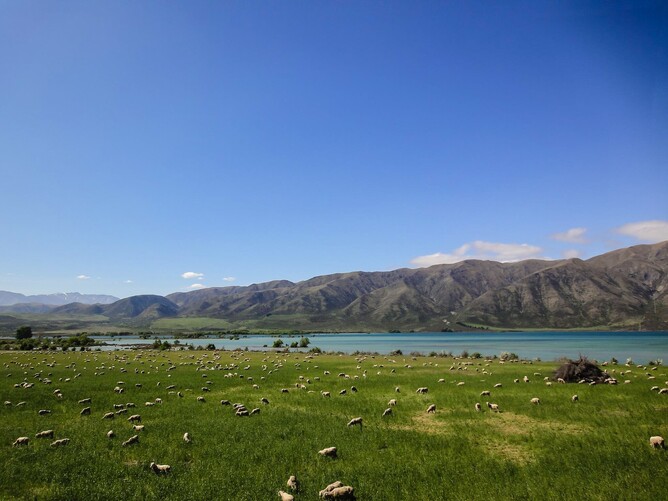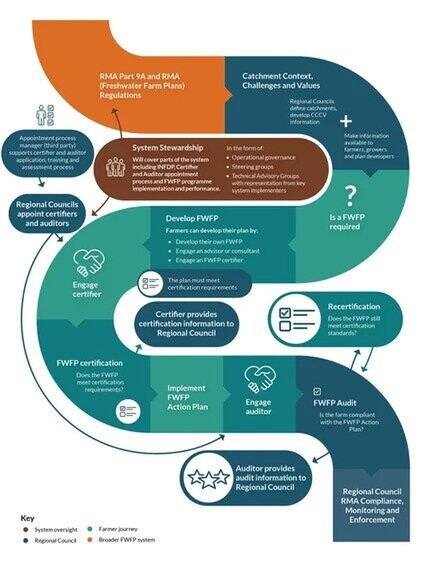Freshwater farm plans (FWFPs) are now required in parts of the Waikato and Southland, with all other regions to be legislated by the end of 2025. Farm operators will have 18 months to produce a plan for certification from when this is ‘turned on’ in their region.
Freshwater farm plans are a practical way for farmers to identify, manage and reduce the impact of farming on the freshwater environment. Farmers must do an on-farm freshwater risk assessment and identify actions to manage (or mitigate) those risks, which will then need to be certified and audited by your local council.
Why are freshwater farm plans happening?
Freshwater farm plans are part of the Essential Freshwater package introduced in 2020 to:
Stop further degradation of New Zealand’s freshwater resources and improve water quality
Reverse past damage
Bring New Zealand’s freshwater resources, waterways and ecosystems to a healthy state within a generation
Who needs a freshwater farm plan?
All those with:
20 hectares or more in arable or pastoral use
5 hectares or more in horticultural use
20 hectares or more of combined use
How do you build a freshwater farm plan?
Step 1: Identify Risks and Understand your Catchment
Your regional council will provide information on your catchment context, challenges, and values.
Step 2: Build a Freshwater Farm Plan
Create a list of risks to be managed, create a list of actions to manage those risks, and create a 5-year action plan to implement those changes.
Step 3: Certification
Farmers must engage with a certifier within 18 months of the regulations being ‘turned on’ in their area. Once certified, your Freshwater farm plan will need to be audited within 12 months of the initial certification.
Step 4: Implement Action Plan (5 year)
Undertake the action plan to mitigate impacts on the environment as outlined in your certified plan.
Step 5: Audit
Farmers must arrange for an auditor to audit their farm within 12 months of certification. The auditor will assess whether the farmer is implementing the certified plan. The timeframe for the following audit will be dependent on your audit grade.
For more information, head here.


